No. Both proud nations will say no (partly to be politically correct).
Vietnam too has a very long history, and detest being called a ‘little China’ , even though it is influenced politically & culturally, probably the most sinicized neighbor.
Chinese does not view Vietnam as a little China, but respect it as a separate old civilisation with which it has a long history, including a long period of being occupied or a tributary.
So please don’t say Vietnam is a little China, Viets (and Chinese) will not appreciate such condescension. It’s like saying Canada is a little USA or NZ is a little Australia or Ireland is a little UK or Nepal is a little India.
Vietnamese has shared or adopted much of Chinese culture over 2000 years, from written script, names, customs, lunar calendar, architecture, religions, Confucius or family values, etc. A Chinese visiting Vietnam and their homes would be amazed how similar they are. Culturally and economically, both are close, and if history had been kinder, they could have been closer politically today.
Longer answer with Pictures.
So who I wonder is asking such a question and why?
Now let us briefly look at various factors for China-Vietnam relationship:
Vietnam has a long history with China .
Certain ‘Yue’ tribes associated with modern day Vietnamese has a history way back during the Qin dynasty, and through most dynasties. The latest unpleasant episode would be Sino-Vietnam war during the Cold War period (as well as disputes over South China Sea). But overall relationship are good at political and economic levels today.
The true history of Vietnam proper as said by their own experts starts in Red delta, Tonkin (North Vietnam), and is separate from the tribes of South China. Old Vietnam was often occupied, a tributary or under strong influence of Chinese dynasties.
Possibly the most sinicized, it adopted most of the practices and knowledge of its bigger neighbor. From a highly contentious and intertwined history, Vietnam does not see itself as any ‘little China’ although its dynasties and culture were modelled or similar.
Qing held France off for some time, but gradually lost its influence to the French. After the Vietnamese defeated the French and the Americans, Vietnam has been fiercely independent and the strongest militarily in ASEAN.
Politically?
They are quite similar with a strong central communist party government running a capitalist economy with socialist characteristics. Both are slowly but surely they have to resolve and be closer.
General Giap settled the borders with China after the last war; Vietnam was one of first to support China in the Tiananmen crackdown; and has supported China in most international agendas. For the future of China-Viet relationship, I hope for better friendship but the SCS dispute may remain highly sensitive for decades. Whilst ASEAN is a positive moderating factor, Vietnam may be tempted to play the USA card.
Physically ?
Forever neighbors; linked by a long land border; with bridges, roads and soon, a high speed rail. Three major crossings, but there are many border towns like below, where I heard people just walk over for shopping.
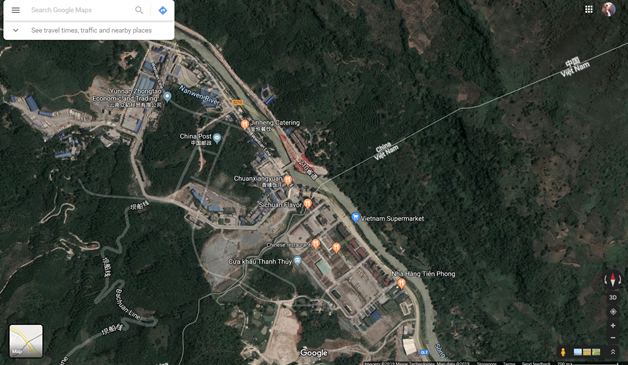
People - similar traits as most Southern Chinese and other minority tribes, and sometimes hard to differentiate. Various ‘yue’ tribes and also Vietnamese has mingled with Chinese blood for a long time. Viets are Austroasiatic with some Tai, with 51 ethnic groups but the main ethnic Kinh (86%) do have a percentage of Chinese blood.
Economically? Vietnam is in AIIB, China-ASEAN partnership, One Belt, and also has free trade agreements with China. They are doing well as economic partners, and cross border trade is booming.
Culturally?
Rather close, and similar in many ways, although they do have their own language and culture, they are considered as sinicized - customs, beliefs, cuisines, literature, written script, etc. Today, I understand Viets watch a lot of Chinese dramas, except they are dubbed. Many things are similar, because they are neighbors for so long.
Diplomatically, I will say Vietnam is a smaller cousin by culture. If they did not have so much problems from the last 3 to 4 decades, they could become allies. China and Vietnam are very close culturally, far closer or sinicised than even Korea and Japan. (with shared cultures with the other tribes, and a small dose of French).
Now the evidence?
So What About the Cultural Similarities?
Have a look at some pictures below, all Vietnamese, but you can see the similarities with Chinese culture.
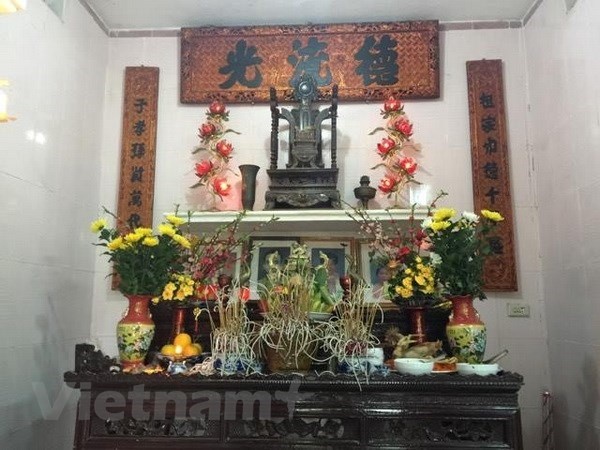
Vietnamese food - noodles (and many cuisine and sauces, style of cooking, kitchen ware and chopsticks).
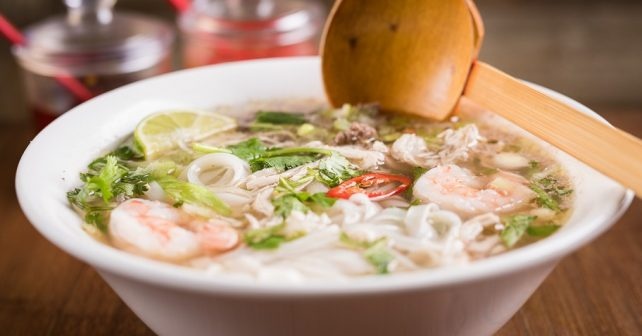
Vietnamese girl. Many look so similar.

Beliefs. Similarities in beliefs, religions, ancestor worship and temples.
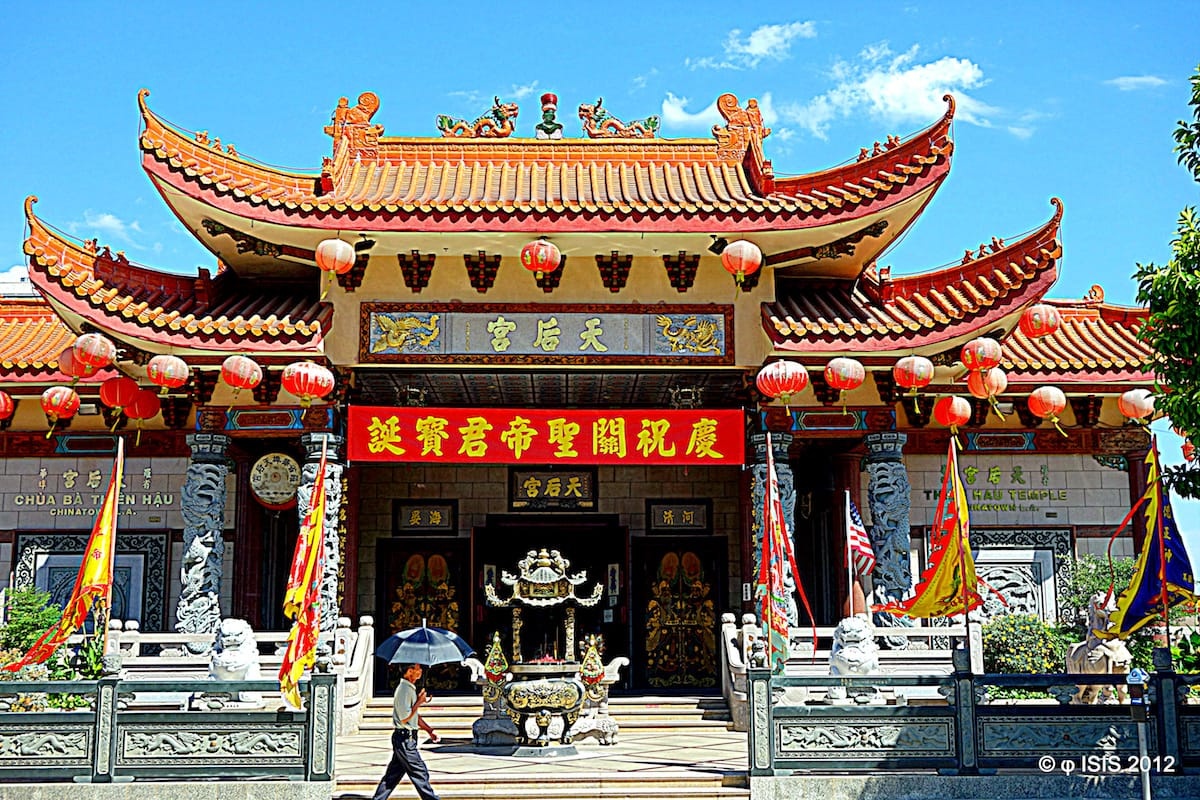
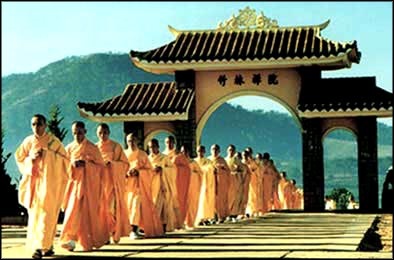
Architecture. A palace/ fort that looks Chinese in design (Nguyen Dynasty).
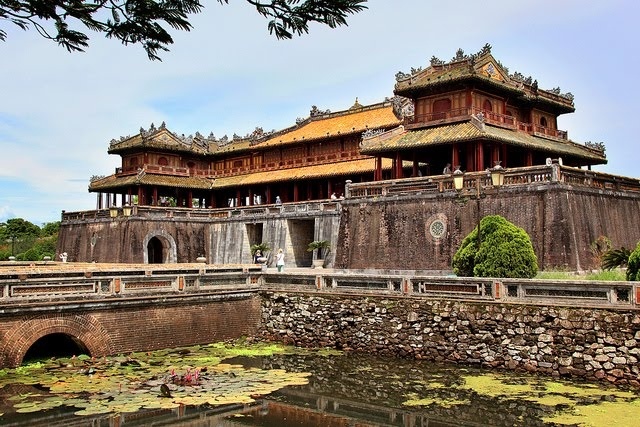
Imperial Practice and Governance. Imperial Dress in Nyugen Dynasty
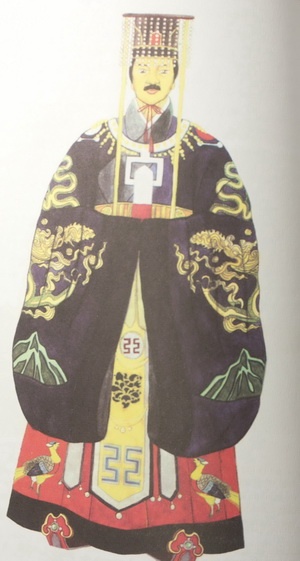
Clothing - Viet dress in Le dynasty.
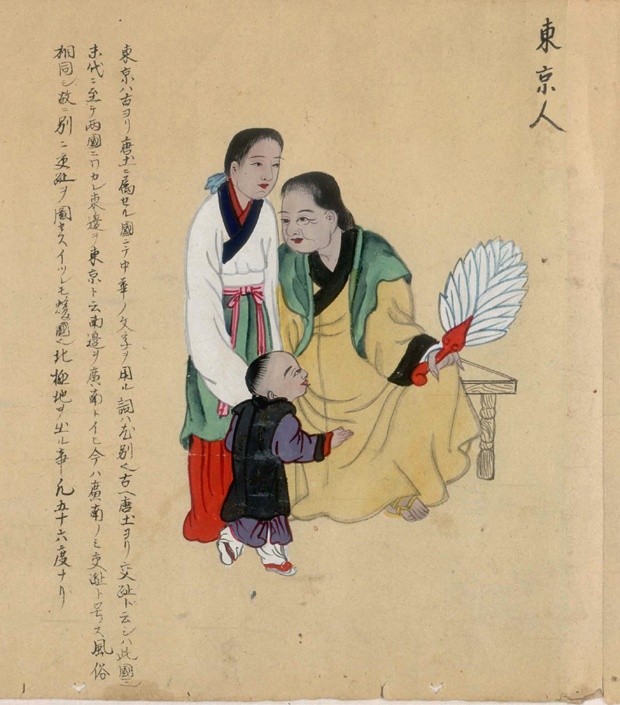
Below is a great chart showing similarities across East Asia. Line 1 is Viet, Line 3 as reference is China.
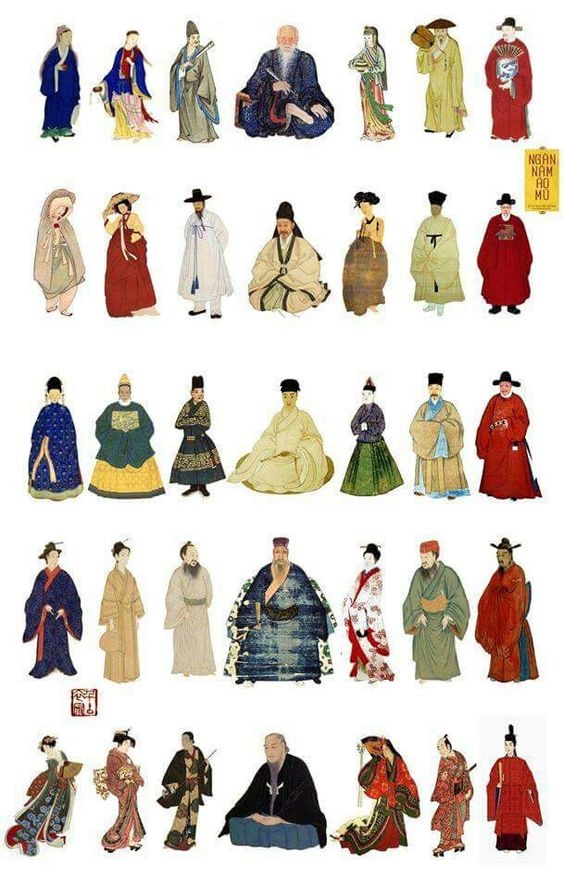
A closer look at how Viet clothes evolve, over the centuries.
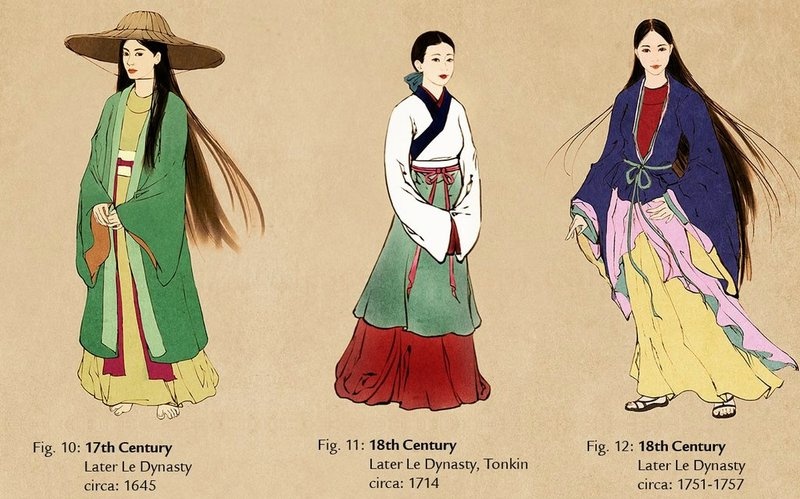
To the very sweet iconic clothes Ao Dai, which is more suitable for the tropical weather of Vietnam.
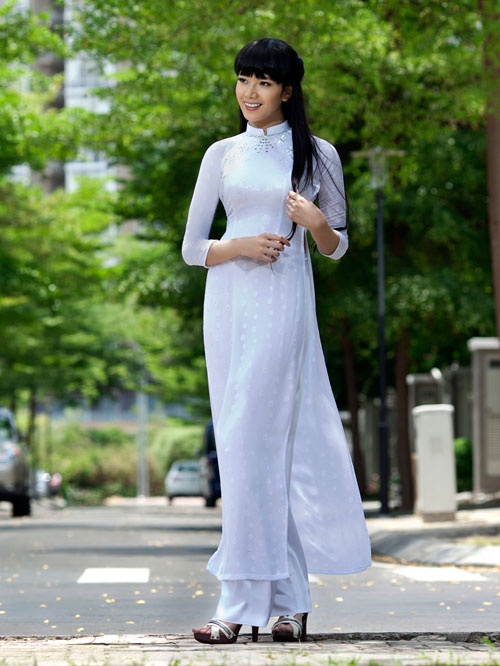
I share this because it says a lot; they even share the same age old inner garment design before the bra came with the French.

Finally, we do have differences.
The Vietnamese do enjoy French style coffee, an alien beverage Chinese has yet to appreciate.

Vietnamese do love their local as well as foreign cigarettes, but Chinese prefer their own hundred brands. But they are the same culturally, in that they smoke too much.

https://baobinhduong.vn/en/ancient-costumes-of-vietnam-a81908.html

